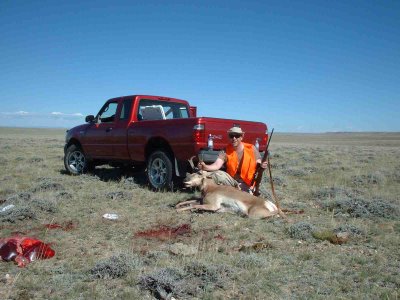20041002
The New Orleans of the Atlantic
I'll be going there again soon.
The Fusilier Pundit Plan to Deploy Ubiquitous High-Speed Internet Bandwidth
Abstract: the fastest way to ensure that high-speed wireless Internet connectivity is deployed to every possible inhabited place in the United States is to chase it into the shadows through the power of US law. The author draws parallels between the the War on Drugs, the War on Guns, and alcohol Prohibition on the one hand, and the availability of high-speed wireless Internet connections on the other.
Making alcohol, abuse drugs, and certain types of firearms illegal encouraged criminal entrepreneurs to ramp up supply to meet suppressed demand. In fact, milieus presumably under total control by government, such as prisons, are incapable of eradicating such "contraband."
A comparable approach, resulting from heavy lobbying by industries who perceive threats to their business model from digital reproducibility of their content, would incentivize a cottage industry of hackers and geeks to circumvent these legal controls, thereby making bandwidth more available, more reliable, more anonymous, and more resilient to malicious code attacks.
The fundamental problem facing developers an underground ubiquitous IP infrastructure are political and economic, not technical. To date there has been no incentive to develop or deploy such an infrastructure because there has been no pressure to do so.
However, if the entertainment industry succeeds in enacting laws that will mandate the inclusion of digital rights management in the existing IP network, for example, there will be ample incentive for industries or activities to move their IP-dependent applications to a network that does not obey those laws. The technology exists, or the precursors to that technology exist, and only await the incentive to be assembled and applied. The demand, today legitimate and above board, will be forced underground. An active community of politicized engineers and technologists already exists to serve them.
The greatest technological obstacle would be replacement of the long-haul high-speed connections provided by such carriers as Level3, Qwest, and Worldcom.
For more, beg and plead for it in Comments.
20040930
Not quite there yet
- It would operate as a PDA when it's pulled from its cradle and jammed into my pocket,
- It can connect to WiFi hotspots and provide a full-featured browser on a low-res monitor in the PDA mode;
- When it's resting in its cradle, it does not sync with another computer, it reboots as one, and simply interfaces with input devices, peripherals, a high-speed IP connection, etc through the cradle.
For respectable desktop performance, it would farm out the functions of full-power CPU, graphics processor, and vast amounts of memory to the cradle, and run from on-board equivalents only when portable. Separate OSs?
It seems that all of the components are there, only waiting for integration.
At least one company is pursuing it, I don't recall the name (OXO?), but they are, of course, basing theirs on Windows.
Who else is close? One of the reasons I went for the iRiver MP3 player is that it could be the progenitor of such a desktop/PDA killer. It is principally, by weight at least, a hard drive. The desktop/PDA killer will be, mostly, a hard drive, with enough application hardware and an OS wrapped around it to support PDA functions, using information written to that drive. Putting a Palm front-end on this drive will do that, if Palm can be made to access hard drives. The whole Palm front-end can go inert when the device is docked.
When the killer is booted in its cradle, the CPU there strokes the hard drive and accesses everything that the Palm OS has put there.
Other devices will be coming towards the killer from other directions. For example, Tapwave's Zodiac is a game console. Put a HD in it?
WTF for the day
There's nothing wrong with them, I've lived on them and was able to transition back to real food successfully afterward. Some of them I even like---the pork rib, for example, and the clam chowder.
But I wouldn't actually buy them. Through the normal course of my service, I accumulate enough of them for my other needs, like the car trunk and the occasional hunting trip, even the overnight bag if I'm on a weird commercial airline flight. But somebody out there thinks they're great long-term survival food and they want to buy and hold them against Doomsday? Not at seven bucks a meal.
The real punchline, though: they're for sale, to any qualified Commissary customer, though every package is marked in Uncle Sugar's standard all-caps boldface,
COMMERCIAL RESALE IS UNLAWFUL
Hey, I just work here.
20040926
More speedgoat

This is what leave is for.
Update: The buck fell at 13TDS0365819982. Range was 207 meters, through a light crosswind, with the same 139-grain .284" pointed-soft-point thrown by 50 grains of IMR4350 from the same 7x57mm Ruger as last year. He fell instantly, then after about twenty seconds he got back up. Then he fell again for good.
He was struck through the sternum. The projo was not recovered.
Next time:
- a laser rangefinder is on order, using miles left over from an old credit card, not enough for a ticket but plenty for this gadget.
- need to carry a safety-orange object just to mark the place where I took the shot. Having nothing this time, I just stacked some rocks. Not easy to find after dressing the animal.



